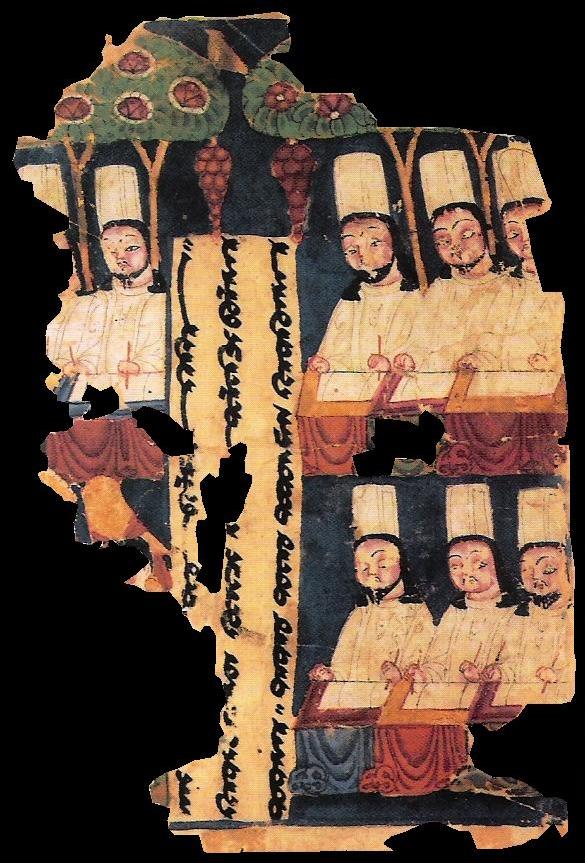
Manuscript in China depicting Manichaean priests
This week in Beirut, my students and I have been looking at the influence of
Manicheism on
St. Augustine, who was a Manichean for ten years before converting to Christianity. The Prophet Mani regarded his doctrine as the completion of the preceding religions of Christianity, Zoroastrianism, and Buddhism, and practice of his religion stretched from North Africa to East Asia.
Manichean texts from Central Asia depict Jesus, Zarathustra, and Buddha as revered carriers of truth, and contain Buddhist doctrinal terminology and numeorus Persian technical terms. One Manichean Parthian text contains this fragment: “For in this cycle of birth and death, there is nothing more beautiful than merit and good deeds.” Eventually, anti-Manichaen campaigns on the
Silk Road led to the
conversion of many Manichean temples into Buddhist temples.

